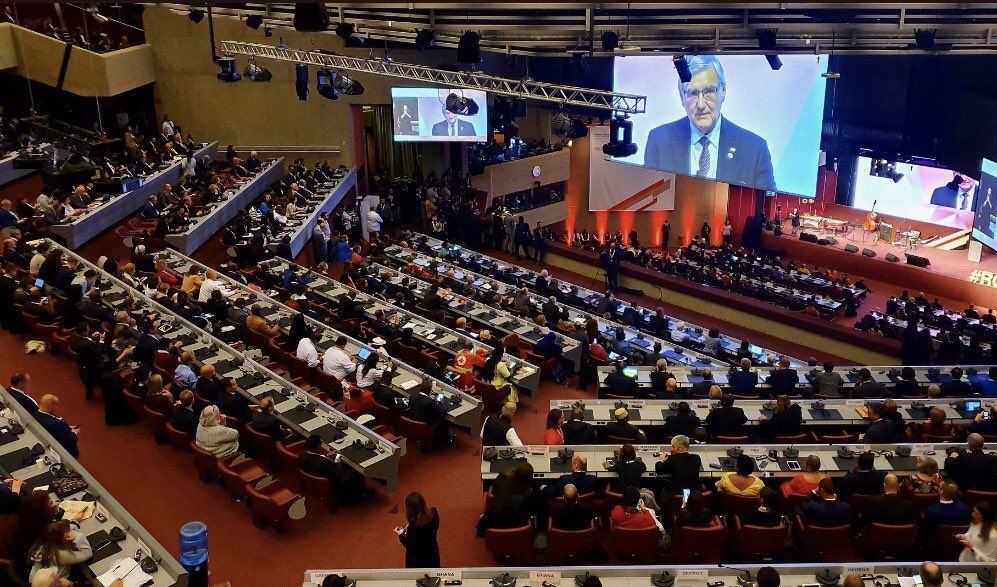
The 33rd International Conference of the Red Cross and Red Crescent, bringing together representatives from around the globe to discuss the world’s most pressing humanitarian issues and adopt resolutions that guide future humanitarian action, ended on Thursday in Geneva.
Improving the lives of people affected by armed conflict, disasters and other emergencies is the core objective of this year’s conference, which aims to influence the global humanitarian agenda and explore current and future challenges affecting people and communities and the vulnerabilities that they face on the ground, according to ICRC.
Representatives from 168 nations joined 187 Red Cross Red Crescent Societies at the three-day conference. The international conference has been held every four years since 1867.
Key issues on the agenda of this year’s conference included trust, mental health, climate change, pandemic preparedness, data protection and migration, according to ICRC. Previous decisions have contributed to the strengthening of international humanitarian law and legal frameworks for disasters while ensuring safe environments for volunteering, it said.
“The International Conference is a unique place for the Red Cross and Red Crescent to discuss critical humanitarian challenges with governments,” said Peter Maurer, ICRC president. “The fact that we had 168 states actively participating shows that governments have a strategic interest in responding to humanitarian crises and engaging with the movement.”
“Being trusted by the people we serve is critical to being able to restore family links, to ensuring lifesaving access, to working with and alongside communities,” said Francesco Rocca, president of the International Federation of Red Cross and Red Crescent Societies.
During the conference a number of resolutions were approved, including a road map for better implementation of international humanitarian law, restoring family links while respecting privacy, addressing mental health and psychosocial needs of people affected by armed conflicts, natural disasters and other emergencies, and working on climate-smart disaster laws and policies that leave no one behind.
“I’m pleased that states, together with the movement, have committed to tackle the new challenges emerging on the world’s frontlines,” said Maurer “They reaffirmed the importance of the laws of war at a time when technical innovation is raising questions about how much control humans have over weapons. And they agreed to protect the personal data of people searching for their loved ones. We also saw an encouraging groundswell of support to boost mental health responses.”
“We are pleased to have reached agreement on the different resolutions,” Rocca said. “We are now ready to ensure the follow up of all the decisions and we will continue to advocate strongly for the localization agenda and the support our national societies, which are local actors par excellence. Strong national societies, strong local actors, mean strong local communities.”



